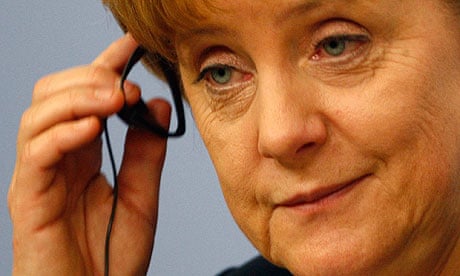German chancellor Angela Merkel has announced an extension to the nation's nuclear power plant operations for up to 15 years beyond a scheduled phase-out, in a move critics fear might signal that atomic power is here to stay.
The decision comes after a panel of experts advised that keeping the plants open was the only way of ensuring climate protection and economic goals were met and that electricity prices did not soar out of control.
Merkel, who spent last week touring some of the country's 17 plants, said phasing them out by 2021 – as had been planned – was unrealistic if the country wanted to meet certain environmental goals.
"Nuclear power is desirable as a bridging technology," she said.
Renewable energies will supply half the country's energy needs by 2050, according to the centre-right government's goals. Nuclear and coal power should continue to be central to the country's energy policy until all power supplies could be replaced by clean energy, the experts advised.
Merkel's announcement, which has the backing of her coalition partner, the Free Democrats, is a heavy blow for the left. The nuclear phase-out was secured under the government of her predecessor, Gerhard Schröder of the Social Democrats (SPD), and was considered one its most significant achievements.
Sigmar Gabriel, the leader of the SPD, said his party was ready to launch a constitutional challenge to the extension and accused Merkel of being a pawn of the nuclear lobby.
Gabriel said: "The chancellor is selling off public safety by allowing ailing and ageing nuclear power plants to stay online longer and by taking money for it." He added that her plan showed her goal was clearly "not to achieve a sustainable energy plan".
The Green party, which was part of the Schröder government when it struck the deal, announced an anti-nuclear demonstration in Berlin on Wednesday.
Some politicians in favour of a nuclear extension, such as Norbert Röttgen of Merkel's Christian Democrats, said they nevertheless feared it might reduce the pressure on the energy industry to research into and develop renewable technologies.
Merkel's decision is also likely to prove highly unpopular amongst the electorate. According to a recent poll, 56% of Germans are against extending the lives of nuclear power plants, citing fears of accidents and terrorism.
